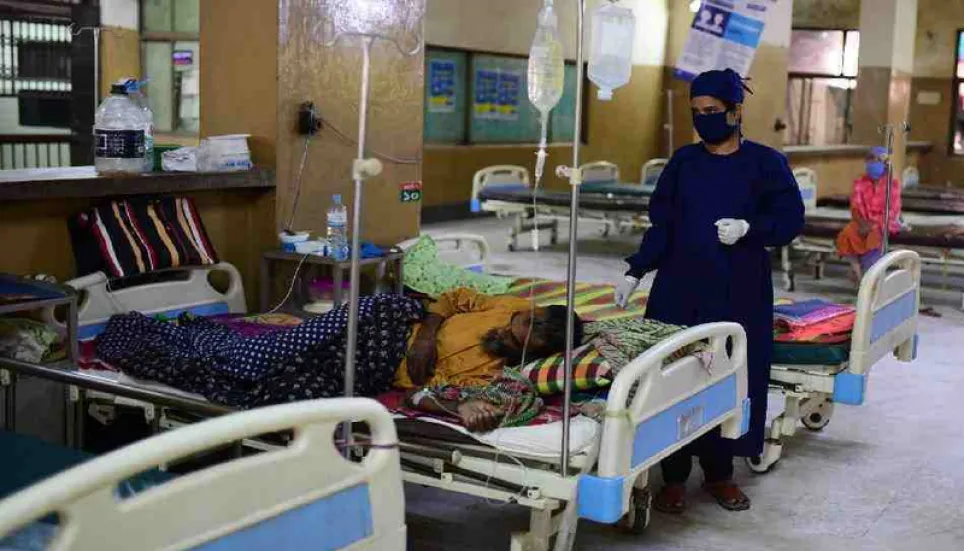
A week ago, a crisis hit the family of Shahed Alam's best friend -- there was no donor available to donate blood for his pal's cancer-stricken father. After unsuccessfully knocking the doors of blood banks across the city for two days, Shahed finally decided to harness the power of social media on Saturday, but to no avail.
"I have been trying hard to arrange blood for my friend's father -- a cancer patient admitted to Mohakhali Cancer Hospital -- since last week. But finding donors is turning out to be a Herculean task amid the nationwide lockdown. Due to strict movement restrictions and the fear of Covid, blood donors are just not stepping out of their homes," he said.
Yes, the Covid-19 lockdown has severely affected the movements of donors across the country, triggering a massive shortage of blood. Most blood banks in the capital as well as other parts of Bangladesh are running short of life-saving blood.
"Blood donors are just reluctant to come out these days. And those who do are often subjected to grilling at police check posts across the city. This is because the Good Samaritans don't possess the mandatory movement passes, and convincing the sentry at a police check post is also a time-consuming affair," said another city resident.
Bangladesh's annual demand for blood is around 8 lakh units. About 25% of the nation's annual blood requirement come from voluntary donation, 20–25% from paid donors, and 50–55% from one-time donation for a particular patient. But the country has seen a drastic fall in both voluntary and direct blood donations in recent weeks.
The decline in blood donations has triggered a chain reaction -- plasma collection has been hit hard. Plasma is the liquid portion of blood that contains antibodies. Many countries have already allowed the use of plasma therapy to treat severely ill Covid patients. The therapy involves the use of plasma of recovered Covid patients as a potential treatment.
Apart from several social organisations, students are also involved in blood donation activity in Bangladesh. But students say that they too are not allowed to move freely due to the strict lockdown restrictions across the country.
Badhon Dhaka University zone president Farid Uddin told UNB that the pandemic had throttled their regular blood donation activities.
“We are, however, trying to function these days. We have prepared a list of former blood donors and our friends, and university seniors and current students who reside in Dhaka, and communicate with them on phone to arrange blood. We also use Facebook groups such as ‘Blood fighter Bangladesh’ to arrange the essential liquid," he said.
"But we are facing some practical difficulties too -- some blood donors are unwilling to go to hospitals to donate blood fearing the coronavirus infection," he added.
Badhon DU zone secretary Onupom Serker Supta echoed similar sentiments. “No academic activity has been going on since March last year and almost all students have now left Dhaka. Due to Covid-19 and lockdown, donors are reluctant to go to hospitals but we trying our level best to convince them."
A regular donor, Rakibur Rahman, said he would not risk visiting a hospital during the pandemic. "Moreover, movement is a hassle in the country these days. Police don't consider our service as part of essential activities and convincing them is a challenge," he said.
Some social organisations have urged the government to consider blood donors as part of essential services.
Bangladesh Blood Donation Welfare Foundation's organisational secretary MD Mithon Miah said that they were finding it really hard to arrange blood due to Covid. "The lockdown has compounded the problem. It's high time the government considered the blood donors part of essential services," he said.